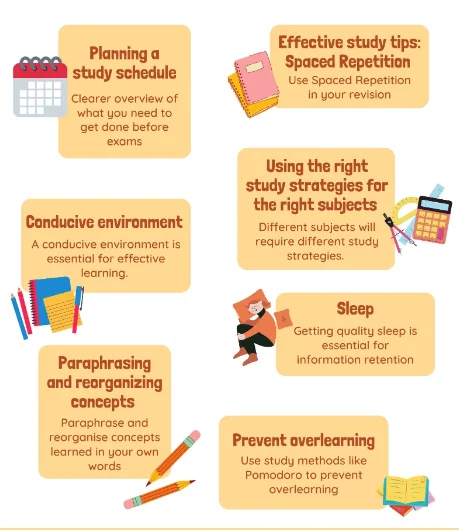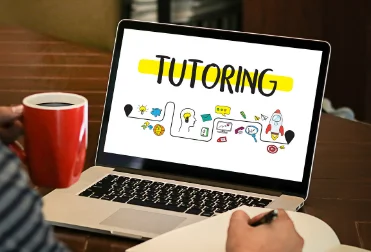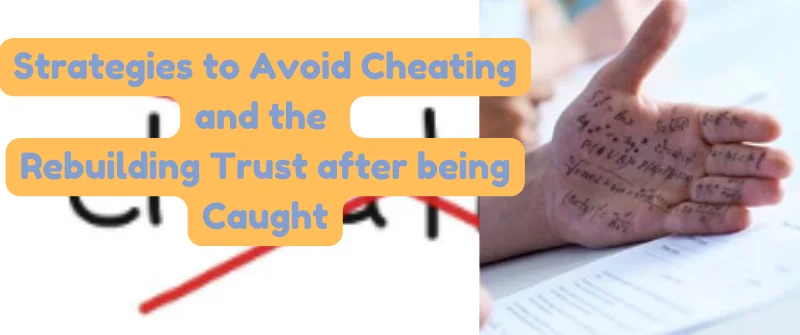In the real world of education, it is of the utmost importance to retain honesty during testing to maintain the trust of students, teachers, and educational institutions.
Those who cheat undermine the basic principles of education and chip away at the roots of confidence.
In this piece, we will discuss many methods and tactics that have successfully prevented students from cheating on examinations and promoted an honest and trustworthy atmosphere within the academic community.
Strategies to Avoid Cheating in the Future
Several strategies exists to helps one to resists any temptation of cheating. As you are aware, cheating can lead you into serious academic issues that could end your academic lifeline. Here are some of the tips to use to avoid cheating:
1. Developing Effective Study Habits

Students can improve their grasp of and remember the content by developing a regular study schedule, segmenting the information into manageable chunks, and employing active learning techniques.
Better yet, this leads to a more grasp of the content and makes the desire to cheat on tests less appealing.
Students can further develop their knowledge and confidence by engaging in study groups, asking for clarification from their teachers, and using resources such as textbooks and online materials.
Such measures allow students to rely on their capabilities rather than resort to dishonest techniques.
2. Time Management
Students can manage their workload better and reduce the temptation to cheat because of last-minute cramming or a lack of preparation if they develop a well-structured plan and allot particular time slots for studying, reviewing, and completing assignments.
Remarkably, this can occur by making a well-organized calendar and assigning different time slots for each activity.
A well-rounded approach to one’s academic duties can happen by partitioning assignments into more manageable pieces, establishing attainable goals, and ranking the importance of various due dates in order of importance.
Students can establish a disciplined attitude to their studies, reduce stress, promote a strong work ethic, and retain academic integrity if they successfully manage their time. It can actualize effective time management while maintaining academic integrity.
3. Creating a Study Schedule
Students can develop a disciplined routine that fosters consistent learning and preparedness if they schedule time specifically for studying and then stick to that pattern.
Making a study schedule enables effective time management, which helps ensure that every subject and topic receives the appropriate amount of attention.
Normally, it makes it easier for students to keep organized, lowers the risk of them putting things off until the last minute. Furthermore, it gives them a detailed plan for how to cover the necessary content.
Students are more likely to gain a strong comprehension of the content if they have a well-planned study regimen, which boosts their confidence and reduces the temptation to cheat on tests.
4. Seeking Academic Support
Students can reach out to their teachers, peer tutors, or fellow students to get their questions answered and receive direction.
Making use of the various resources that are accessible, such as study groups, academic workshops, or online forums, promotes collaborative learning and cultivates an environment that is awe inspiring.
Students can increase their comprehension of the material, acquire confidence, and develop a sense of accountability if they actively participate in class discussions and ask questions.
Seeking academic assistance encourages an honest attitude to study, reducing the temptation to cheat and helping cultivate a culture of honesty.
5. Hire Tutoring Services

It is necessary to select tutoring services that prioritize ethical methods and encourage authentic learning.
When choosing a tutor, it is crucial to ensure that their primary focus is not on giving shortcuts or performing the work for you but improving understanding, clarifying concepts, and building study skills.
You can gain the confidence you need to achieve academically without resorting to dishonest methods if you work with a reputable tutor who can help you improve your academic knowledge and talents.
6. Join Study Groups
Working together with other people at the same level allows for the sharing of ideas, the clarification of concepts, and the provision of mutual support.
Study groups offer a forum where difficult subjects can be discussed, study resources shared, and members can put their problem-solving skills to practice in a group setting.
Students can improve their level of comprehension by actively engaging in study groups and gaining access to the conversations and explanations provided by their classmates.
Such measures reduce the temptation to cheat and establish a culture that values academic honesty by creating an authentic learning environment where all students work together to achieve academic success.
7. Utilizing the School Writing Centers
Assistance that writing centers feature many stages of the writing process like brainstorming, outlining, and editing.
Students can enhance their writing abilities, ensure accurate citation and referencing, and learn efficient proofreading strategies if they seek assistance from writing tutors or consultants and make use of this assistance.
Students can generate their own original work and avoid plagiarism traps when they use the resources accessible at writing centers, which contributes to the promotion of academic integrity.
8. Using the School Library

The library provides access to various resources that can facilitate self-directed education and research.
Students have access to various reputable sources of knowledge when they use the items available at the library.
These materials include books, academic journals, and databases. Such fosters the growth of critical thinking and contributes to strengthening academic integrity by encouraging the use of legitimate sources in both assignments and examinations.
Students can generate original and well-informed work when librarians provide instruction on good research methodologies, citation styles, and appropriate information use.
Rebuilding Trust after being Caught
1. Consistent Academic Performance
After being found guilty of dishonest behavior, one of the most important steps toward regaining confidence is maintaining a consistent academic performance.
Students can demonstrate that they have grown from past failures and stay dedicated to sustaining ethical values by continuously exhibiting high effort, dedication, and integrity in their academic pursuits.
Building confidence requires demonstrating a genuine and ongoing commitment to academic excellence and integrity, evident through consistent academic performance.
2. Honest Communication with Instructors
Students must learn to apologize publicly for their errors, accept responsibility for their actions, and demonstrate true repentance.

One can gain a greater knowledge of the repercussions of their actions and have the opportunity to discuss strategies to restore trust in the relationship through having open and honest dialogues.
Communicating openly and often with one’s professors indicates a dedication to upholding ethical standards and paves the road for the gradual restoration of trust.
3. Participating in Academic Integrity Programs
Students exhibit a true commitment to growing from their experiences, both positive and negative, and to maintaining high ethical standards when participating in academic integrity programs.
Participation demonstrates a willingness to actively contribute to developing an honest culture within the academic community.
Students can create techniques to prevent future incidents of academic dishonesty and get a greater grasp of the ideas underlying academic integrity by participating in workshops, seminars, or training sessions. These opportunities are available to students.
Conclusion
Avoiding cheating in exams and rebuilding trust requires a commitment to learning from mistakes and personal growth.
It is crucial to recognize the importance of personal integrity in academic settings, as it preserves trust between students, educators, and institutions and promotes a genuine and meaningful educational experience.
When you embrace ethical practices, students can cultivate a culture of honesty, responsibility, and personal growth, ensuring a foundation of trust that benefits the entire academic community.
